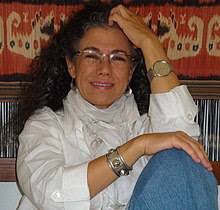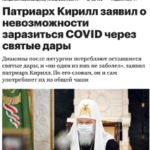Would A Bobi Wine Presidential Victory Bring Freedom And Prosperity To Uganda?
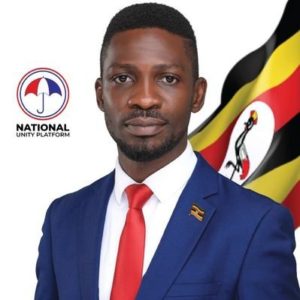 Robert Kyagulanyi Ssentamu—better known to the public as Bobi Wine—is a singer turned politician who is currently campaigning in the January 2021 general election to oust Uganda’s President Yoweri Museveni who has been in power for more than 30 years.
Robert Kyagulanyi Ssentamu—better known to the public as Bobi Wine—is a singer turned politician who is currently campaigning in the January 2021 general election to oust Uganda’s President Yoweri Museveni who has been in power for more than 30 years.
Bobi Wine, with a widespread following and popularity among a significant segment of the Ugandan population, has emerged as a strong challenger to Museveni. As a musician, many of Wine’s songs take a socially conscious tone by speaking out against poverty, and in favor of freedom and democracy for Ugandans. Wine grew up in one of the nation’s poorest neighborhoods in the capital city of Kampala and his rise from poverty to being a successful singer, and then an elected Member of Parliament, has been viewed as an inspiration to many of his followers who regard him as ‘the Ghetto President’.
Since Wine’s election as Member of Parliament in 2017, he strongly opposed authoritarian measures imposed by Museveni such as the President’s decision to remove age limits and Wine publicly rallied against the President’s decision to impose a social media tax to stifle opposition towards him on WhatsApp, Facebook, and Twitter.
During this time, Wine also created a national movement called “People Power”— a movement consisting of, as The Economist describes, “a messy coalition of established politicians, frustrated graduates, and the hustlers of his ghetto hinterland.”
The purpose of the movement is to bring awareness to Museveni’s improper governance and to challenge conventional politics. In response to Wine’s public demonstrations against Museveni, Wine has been subjected to state-sanctioned torture and repeated arrest. Most notably, in August 2018, allegedly on the orders of President Museveni, the Ugandan Security Forces fired live bullets into a crowd of Wine supporters, killed Wine’s personal driver, invaded the hotel that Wine was staying in and proceeded to arrest and subsequently torture him and his colleagues.
On July 24 th , 2019, Wine announced his bid to run for president in the 2021 general election. In July 2020, Wine announced himself as the leader of the rebranded and previously obscure political party, the National Unity Platform (NUP). The formation of such a party, with its conventional structure and authority over candidates, comes in contradiction with the spirit of Wine’s People Power movement aimed at challenging conventional politics. In addition, it has been reported that Wine’s new party has engaged in transactional politics. For instance, Derrick Ssonko, who is a mechanic, felt inspirited to run for local councilor, “but the party ticket went to a rival who paid a bribe. He worries that the NUP is ‘old wine in new bottles’ even though everyone he knows will vote for it.”
During his Presidential campaign, supporters of Wine have been met with police violence. In November, 54 people were killed as supporters called for the release of Wine from detention.
Wine had been arrested at a campaign rally. Uganda’s security forces have routinely prevented Wine from attending his campaign rallies and the President has prevented Wine from appearing on TV and radio stations. Most recently, the United States’ Secretary of State, Mike Pompeo, publicly condemned tactics within Uganda to suppress free and fair elections. In addition, Eliot Engel, the chairperson of the US House Committee on Foreign Affairs, has requested that the US impose sanctions on several Ugandan security officials in response to “a worsening of human rights in the country.” In order to prevent Museveni from rigging the election, Wine has said that he hopes for an overwhelming turnout at the ballot box to make it difficult for Museveni to do so.
Uganda consists of a nation where 80% of the population is under the age of 35, and for these individuals, Bobi Wine brings a great deal of hope for a better life. The disparity in the demographics has created a generational divide whereby Museveni is viewed as unpopular among the youth but is viewed as popular among older rural voters who view regime change as “a hauntingly perilous idea”—linking such change to the years of bloody horror that preceded Museveni.
However, it must be met with cautious optimism whether, as a politician, Wine would be able to deliver on his promises or whether Wine’s victory would mean a continuation of corrupt politics. In Wine’s campaign manifesto he states, “Our promise to the youth of Uganda, we shall ensure we find meaningful employment for you. We want to create at least 5 million jobs. We shall invest in technology and a massive scale of industrialization……A vote for NUP is an assurance that citizens will never be persecuted for disagreeing with the government. A vote for NUP is a vote for the protection of our natural resources as a country which Gen. Museveni now treats as his personal wealth. A vote for NUP is a vote for the closing of the income gap between the rich and the poor…. Our promise to all Ugandans is that we shall safeguard their land. We shall put an end to the enormous scale of land grabbing. If it is done, justice must prevail… The National Unity Platform is committed to working with all Ugandans to improve their lives. We believe that immediately after taking over government, every Ugandan from Kaabong to Kisoro, from Yumbe to Busia will experience meaningful change in their way of life……”
Despite such progressive electoral promises, it remains publicly unclear as to how Bobi Wine proposes to accomplish them. Wine’s political headquarters has images of pan-African heroes like socialist leader Thomas Sankara, but Wine has also been known to collaborate with free-market thinktanks. Wine said that his goal is to rebuild public institutions and end decades of personalized rule, but Wine himself has also said, “I don’t have a very radical programme.” In President Museveni’s first year in office, he published a book entitled, “What’s Africa’s Problem?”—in which he stated, “The problem of Africa, in general, and Uganda in particular, is not the people but leaders who want to overstay in power.” Bobi Wine’s call for freedom, democracy, and prosperity for Ugandans were the same political views that Museveni had once politically embraced long ago, but gradually, with time, Museveni became a corrupt authoritarian leader—if Bobi Wine won, would he be capable of ending the repetition of that authoritarian cycle?
—
Pitasanna Shanmugathas is a second year MGA student. During his undergraduate studies in political science and criminology at the University of Toronto, Pitasanna volunteered with the Canadian Centre for Victims of Torture, primarily providing support to refugees fleeing persecution in their native countries. Pitasanna is the director of a social media group, consisting of over 2,500 members, that speaks out against past and ongoing human rights abuses in Sri Lanka carried out by both state and non-state actors — as director Pitasanna has interviewed Sri Lankan politicians, journalists, and activists to bring greater awareness to the country’s ethnic tensions and human rights abuses. In 2017, Pitasanna launched a petition, which was later introduced in Parliament, calling on the Trudeau government to accept Rohingya refugees into Canada. His career goals include working with organizations to protect the rights of refugees and minority communities and advocating for constitutional reform in nations besieged by conflict.
Green Social Democracy Offers The Most Viable Path Toward A Sustainable Future
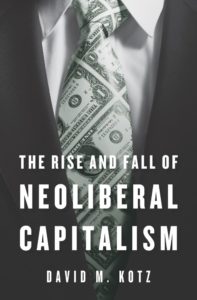 The coronavirus pandemic has created both a public health and an economic crisis in the United States. More than 300,000 people have died of COVID-19, with excess deaths highest among Black and Latinx populations. Hospitals across the country have passed the breaking point. And millions are struggling to eat and pay the rent. Yet, the stock market is hitting record highs and the super-rich are getting even richer in the midst of the pandemic. Yet, there is no talk among the elites of meaningful reforms, even while the climate change is driving the planet to tipping points.
The coronavirus pandemic has created both a public health and an economic crisis in the United States. More than 300,000 people have died of COVID-19, with excess deaths highest among Black and Latinx populations. Hospitals across the country have passed the breaking point. And millions are struggling to eat and pay the rent. Yet, the stock market is hitting record highs and the super-rich are getting even richer in the midst of the pandemic. Yet, there is no talk among the elites of meaningful reforms, even while the climate change is driving the planet to tipping points.
In the interview that follows, David Kotz, economics professor at the University of Massachusetts Amherst, argues that radical change is the only hope for a sustainable future and advocates a blueprint based on the vision of a “green social democracy.” Kotz is the author of scores of articles and books, including The Rise and Fall of Neoliberal Capitalism (Harvard University Press).
C.J. Polychroniou: David, we are again in the midst of yet another capitalist crisis, yet the stock market is at a record high. How could this be when the economy is weakening and so many Americans are struggling?
David Kotz: The performance of the stock market is not a good indicator of the health of the economy. It is driven by expected future profits of corporations and future dividend payouts, which cannot be known with any certainty. At times the stock market is affected by purely speculative factors; that is, the belief that if stock prices have been rising recently then they will continue to rise in the future, which can lead to a self-sustaining upward spiral in stock prices.
On March 1, 2020, just before the pandemic began to shut down the U.S. economy, the ratio of price to corporate earnings for the Standard and Poor’s 500 corporations was 22.80, yet after some nine months of pandemic economic crisis, it had risen to 37.08 on December 11, 2020. While the majority of the population has suffered financially during this period, the rich, who do most of the stock market investing, have been doing fine. Large corporations have been taking actions that boost their stock price, such as buying back their own shares at a historically high rate and making large dividend payouts — actions that do not indicate economic health of the economy. While U.S. corporate profits fell by 20 percent in the second quarter of 2020 compared to six months earlier, dividends fell by only 5 percent.
The United States is the richest country in the world, but its distribution of wealth is more unequal than in any other country in the advanced industrialized world. Why is that?
An unmodified capitalist economy generates a very high degree of inequality of income and wealth, as the owners of companies and other forms of property are able to take most of what is produced by working people. However, inequality can be reduced when workers have strong trade unions through which they can claim a larger share of what they produce. Inequality can also be reduced by several kinds of government interventions, including income maintenance programs, progressive tax systems, minimum wage regulations, provision of essential goods and services for free or at reduced cost, and not least, fiscal and monetary policies that promote a low rate of unemployment. A low unemployment rate increases labor’s bargaining power and particularly benefits workers who are at the low-wage end of the working class.
The labor movement in the U.S. historically has been weaker than in other developed capitalist countries. Among the reasons for this are the following: 1) the ethnic and racial diversity of the U.S. working class, which has made it more difficult for all workers to combine in struggle against employers; 2) the rapid population growth in the U.S. in the period when capitalism was developing in the late 19th and early 20th centuries, which created significant opportunity for workers and their children to rise in the class structure; 3) the U.S. capitalist class put up very determined resistance to labor unions, including the use of violence; and 4) American culture is relatively individualistic, which makes it more difficult for workers to engage in collective action.
For the same reasons cited above, the U.S. is the only developed capitalist country in which a working class-based socialist political party has never achieved major party status. In other countries such parties have played the major role in the enactment of government programs that reduce inequality. In the U.S., the Democratic Party has in some periods played a somewhat similar role, but that party is not a workers’ party but rather represents parts of big business and parts of small business as well as working people. The result has been much weaker government programs that reduce inequality.
Najaar 2022 verschijnt het dagboek bij Musketier Verlag (Bremen)
 Die deutsche Jüdin Paula Bermann, die in den Niederlanden beheimatet war, führte von 1940 bis 1944 ein Tagebuch. Das Tagebuch ist ein beklemmender Bericht über die Welt im Krieg, ihre niederländische Familie, ihre Familie in Deutschland und das heraufziehende Elend. Sie ist politisch sehr gut informiert und beschreibt detailliert den Alltag in Amsterdam und ab 1942 aus dem Versteck in Jutphaas. Zwischen den Zeilen sind ihre Ängste und Sehnsüchte und ihre Abneigung gegen eine aufgezwungene Identität zu lesen: sowohl deutsch als auch jüdisch. Als Deutsche wird sie misstrauisch beäugt, als Jüdin gejagt. Bermanns Tagebucheinträge sind durchdrungen von Melancholie, Wut, Sorge um ihre Kinder, Abneigung gegen ihre Landsleute und Angst vor Verrat.
Die deutsche Jüdin Paula Bermann, die in den Niederlanden beheimatet war, führte von 1940 bis 1944 ein Tagebuch. Das Tagebuch ist ein beklemmender Bericht über die Welt im Krieg, ihre niederländische Familie, ihre Familie in Deutschland und das heraufziehende Elend. Sie ist politisch sehr gut informiert und beschreibt detailliert den Alltag in Amsterdam und ab 1942 aus dem Versteck in Jutphaas. Zwischen den Zeilen sind ihre Ängste und Sehnsüchte und ihre Abneigung gegen eine aufgezwungene Identität zu lesen: sowohl deutsch als auch jüdisch. Als Deutsche wird sie misstrauisch beäugt, als Jüdin gejagt. Bermanns Tagebucheinträge sind durchdrungen von Melancholie, Wut, Sorge um ihre Kinder, Abneigung gegen ihre Landsleute und Angst vor Verrat.
Noch nie hat es eine so leidenschaftliche und präzise Beschreibung eines Lebens in den besetzten Niederlanden gegeben, geschrieben von einer deutschen Jüdin. Das Tagebuch endet abrupt: Im Frühjahr 1944 werden Paula, ihr Mann Coen und ihre Tochter Inge verraten, verhaftet und über Westerbork nach Bergen-Belsen deportiert. Kurz vor der Befreiung sterben Paula und Coen. Ihre drei Kinder überleben den Krieg.
Paula Bermann – Die Entgleiste Welt. Musketier Verlag, Bremen 2022. ISBN 978-3-946635-67-3. Euro 24,90
Smadar Lavie – Mizrah Feminism And The Question Of Palestine
This paper analyzes the failure of Israel’s Ashkenazi (Jewish, of European, Yiddish-speaking origin) feminist peace movement to work within the context of Middle East demographics, cultures, and histories and, alternately, the inabilities of the Mizrahi (Oriental) feminist movement to weave itself into the feminist fabric of the Arab world.
Although Ashkenazi elite feminists in Israel are known for their peace activism and human rights work, from the Mizrahi perspective their critique and activism are limited, if not counterproductive. The Ashkenazi feminists have strategically chosen to focus on what Edward Said called the Question of Palestine—a well funded agenda that enables them to avoid addressing the community-based concerns of the disenfranchised Mizrahim. Mizrahi communities, however, silence their own feminists as these activists attempt to challenge the regime or engage in discourse on the Question of Palestine. Despite historical changes, the Ashkenazi-Mizrahi distinction is a racialized formation so resilient it manages to sustain itself through challenges rather than remain a frozen dichotomy.
Source: Journal of Middle East Women’s Studies · April 2011
Download Full Text: Lavie_MizrahiFeminismandtheQuestionofPalestine
Essay Essenties Forensische Expertise. Over het ideaal van een Handboek Forensische Expertise
Inleiding
Met dit essay [1] wil ik een onorthodox voorstel doen tot het vervaardigen van een handboek forensische expertise [2] . Mijn intentie is een echte begrip-verbetering te bewerkstelligen bij alle juridische professionals, bij alle ‘gebruikers van forensische expertise’ in de keten van het strafproces; mijns inziens een tijdloos en zeer nuttig ideaal.
Naar aanleiding van recente zitting-bezoeken aan 24 Nederlandse strafzaken waarin deskundigen een belangrijke rol speelden, is mij – in nagenoeg iedere strafzaak – gebleken dat meer begrip en duidelijker uitleg gewenst is van binnen het Nederlands Forensisch Instituut (NFI) gepraktiseerde natuurwetenschappelijk en technisch laboratoriumonderzoek, dat aan sporen wordt verricht, ten dienste van de waarheidsvinding in het strafrecht.
Dit sporenonderzoek in het kader van het strafproces wordt ook wel criminalistiek genoemd. Criminalistiek is het natuurwetenschappelijk deel van de forensische wetenschappen. Het richt zich op natuurwetenschappelijk onderzoek aan bewijsmateriaal ten behoeve van waarheidsvinding in het strafrecht. En het richt zich op de betekenis van de resultaten van zulk onderzoek voor die waarheidsvinding [3] .
De verklaring van een deskundige ter terechtzitting (art. 339, lid 1 sub 4) en het deskundigenrapport, de ‘schriftelijke bescheiden’ (art. 339, lid 1 sub 5) zijn de twee wettige bewijsmiddelen, die de deskundige regarderen ten aanzien van zijn bijdrage aan het bewijs. Samen met: eigen waarneming van de rechter, verklaringen van de verdachte en verklaringen van een getuige (art. 339, lid 1, sub 1, 2 en 3), zijn dit – limitatief – de vijf wettige bewijsmiddelen, die worden erkend in het Wetboek van Strafvordering.
Ondanks dat er in ons land ook forensische expertise wordt verricht door andere instanties, zoals de Politie, (semi) private instituten, – laboratoria en – personen en universiteiten, wil ik om twee redenen het NFI als mijn uitgangspunt nemen:
1. Anno 2020 wordt het leeuwendeel van gerechtelijke onderzoeken aan sporen in verband met strafbare feiten in Nederland nog immer – op hoog wetenschappelijk niveau – door het NFI verricht; in opdracht van het Openbaar Ministerie tijdens de opsporings- en vervolgingsfase, op verzoek van de rechter-commissaris, de rechter en in voorkomende gevallen ook ten dienste van de verdediging, op verzoek van de advocaat.
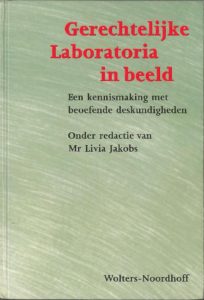
2. Anno 1995 heb ik het voorrecht gehad om een naslagboek [4] te mogen initiëren en redigeren over gepraktiseerde forensische expertise binnen de toen nog ‘’Gerechtelijke Laboratoria’’ genaamde voorgangers van het NFI.
Met betrekking tot de toen door mij onderscheiden 31 diverse deskundigheidsgebieden, is in solide samenwerking met 31 experts, destijds een krachtige kennisbron ontstaan ten dienste van de staande en de zittende magistratuur, wat tevens is aanbevolen als leerboek voor de Politie Academie.
Na 25 jaar acht ik de tijd rijp voor een actuele en gestructureerde herdefiniëring van voorwaarden ter beter begrip van de forensische deskundigheden, in de vorm van een:
Blauwdruk, die de essenties beschrijft van achtergrondkennis, theorie, praktijk en wetenschap, per expertise.
Ter illustratie van de importantie van een systematische samenstelling van een naslag- en leerboek over forensische expertise heb ik de volgende argumenten-vierdeling gemaakt:
A. Waarom: de redengeving, het vinden van redenen,
B. Wat: de inhoudsopgave, het versterken van bètawetenschappen en technieken,
C. Hoe: de methode, het beschrijven van de essentie in de verbindende Blauwdruk,
D. Waartoe: het verbeteren van het begrip van de doelgroepen.
Kroketten
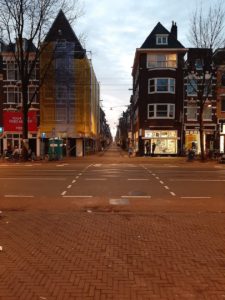 Het is nog vroeg.
Het is nog vroeg.
Verscholen in haar dikke jas zit ze in de portiek. Met al haar tassen als ruggesteun.
Iedere ochtend bestaat ons gesprek uit ‘Goedemorgen.’
Maar vandaag verrast ze me. Ze wijst op de gevel aan de overkant.
‘Kijk’, zegt ze.
Ik kijk naar het doek.
‘Toch nog goed nieuws’, meldt het spandoek.
Ze glimlacht.
‘Er komt een Febo’, zegt ze, ‘daar hebben ze lekkere kroketten.’
Ze kijkt me even aan.
‘Die nam ik vroeger altijd. Als we uitgingen.’


